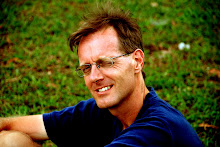A new world order - Lester Brown
China now consumes more of the Earth's resources than the US. Lester R Brown examines the consequences should its population devour at the American rate, and how growth is viable within our planet's boundaries
Wednesday January 25, 2006
The Guardian
For almost as long as I can remember, the experts have been saying that the US, with 5% of the world's population, consumes a third or more of the Earth's resources. That is no longer true.
China has now overtaken America as the world's leading resource consumer. Among the basic commodities - grain and meat in the food sector, oil and coal in the energy sector, and steel in the industrial sector - China now consumes more of each of these than the US except for oil. It consumes nearly twice as much meat - 67m tonnes compared with 39m tonnes in the US; and more than twice as much steel - 258m tonnes to 104m.
Time for Plan B
Sustaining our early 21st-century global civilisation now depends on shifting to a renewable energy powered, re-use/recycle economy with a diversified transport system. Business as usual - Plan A - cannot take us where we want to go. It is time for Plan B, time to build a new economy.
Glimpses of the new economy can already be seen in the wind farms of western Europe, the solar rooftops of Japan, the fast-growing hybrid car fleet of the US, the reforested mountains of South Korea, and the bicycle-friendly streets of Amsterdam. Virtually everything we need to do to build an economy that will sustain economic progress is already being done in one or more countries.
Taxing negative activities
The key to restructuring the global economy is restructuring national tax systems. In effect, lowering taxes on income and increasing those on environmentally destructive activities. This has progressed fastest in Europe, where countries are taxing negative activities, such as carbon emissions, the generation of rubbish (landfill taxes), and cars driven in cities.
A four-year plan adopted in Germany in 1999 systematically shifted taxes from labour to energy. By 2001, this plan had lowered fuel use by 5%. It had also accelerated growth in the renewable energy sector, creating some 45,400 jobs by 2003 in the wind industry alone - a number that is projected to rise to 103,000 by 2010.
Of all the resources needed to build an economy that will sustain economic progress, none is more scarce than time. With climate change, we may be approaching the point of no return. The temptation is to reset the clock. But we cannot.
Nature is the timekeeper.


0 Comments:
Post a Comment
<< Home